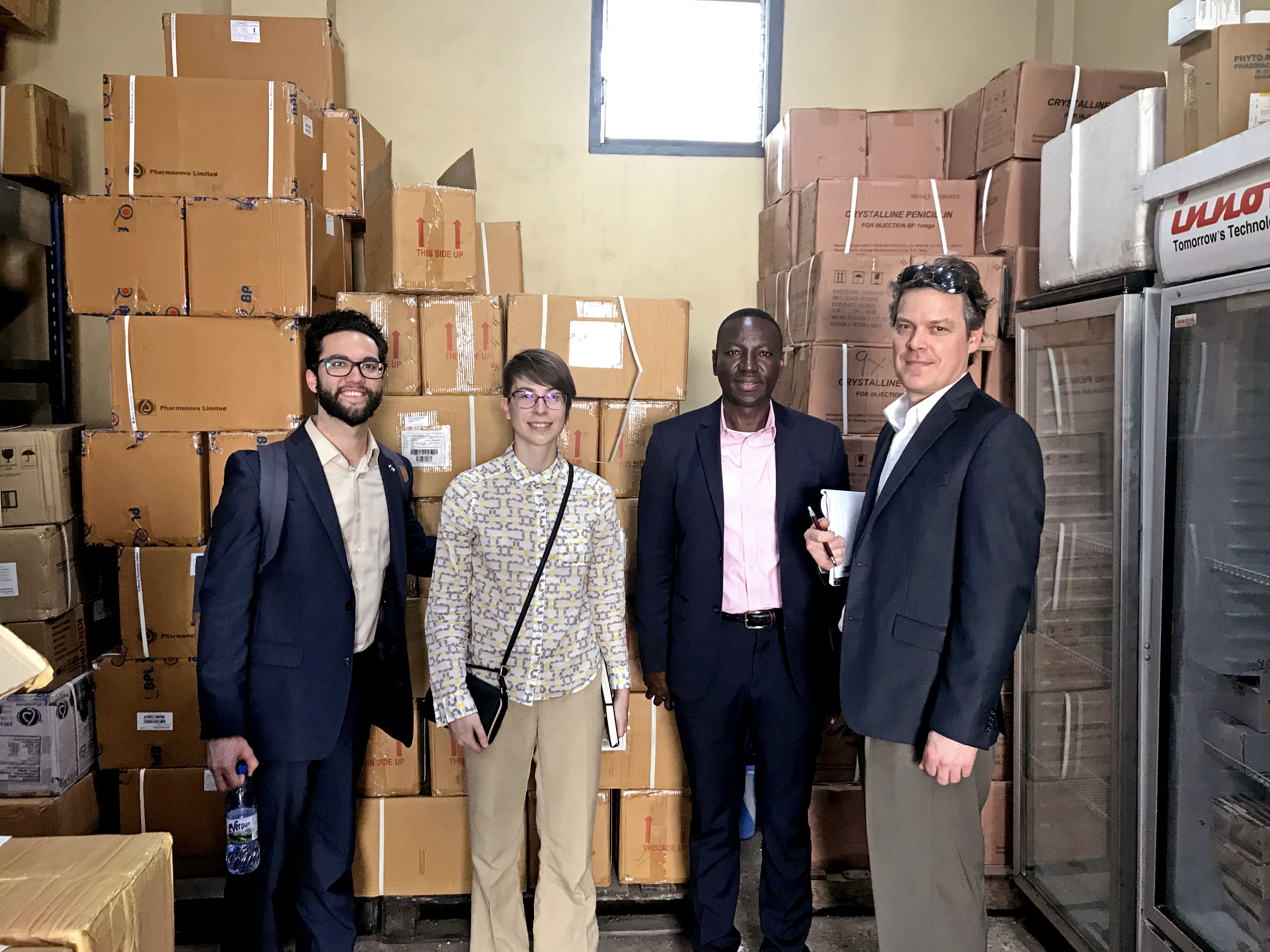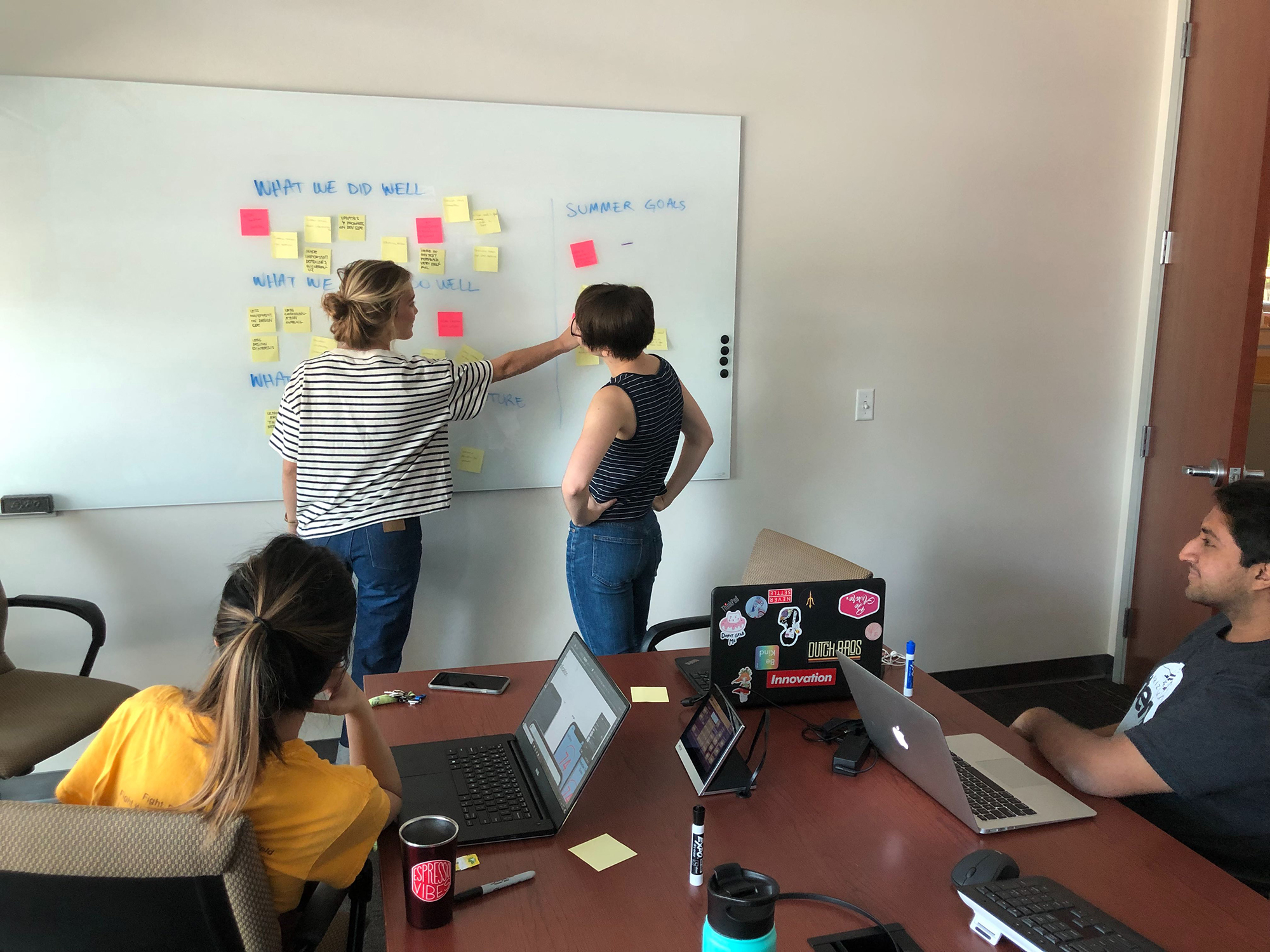ASU, USAID ignite global supply chain education

A rendering of the ShipShape app in use. Image courtesy of Luminosity
A lone midwife manages a community-based planning center in Ghana. Her small staff is great at helping patients but lacks formal training in supply chain management. As a result, some weeks they have too much medicine and it expires. Other weeks, they don’t have enough and sick people must do without.
This kind of situation is common throughout the developing world. In search of innovative solutions, the U.S. Agency for International Development (USAID) created the Grand Challenge for Supply Chain, inviting nontraditional partners to submit proposals to solve global development challenges.
Thomas Kull, a research professor in the W. P. Carey School of Business at Arizona State University, envisioned a gamified app to teach supply chain basics in an engaging way with a relatively low time commitment, using existing mobile infrastructure. Kull’s idea was one of only two proposals awarded the USAID grant from a pool of 500 applications. The first version of the app, ShipShape, was piloted in Ghana this spring.
“There are so many instances of problems in the developing world that could have been prevented through education. However, getting that education out there is often a costly endeavor with logistical challenges,” said Kull. “Ghana has great mobile infrastructure, so if we piggyback on top of that, this becomes one of the many ways to overcome this issue, by making knowledge highly accessible.”
To realize his vision, Kull began working with ASU Luminosity, an interdisciplinary, student-run research lab. Luminosity harnesses student talent to solve complex problems while providing hands-on experience.
“Luminosity is marshalling the incredible talent of students across the university to solve really challenging problems,” said Stephen Feinson, the associate vice president of International Development at ASU. “We had a very specific need, we had a scope of work for a project that we needed to address and all of the talent that Luminosity can bring together. It was clear that the talent to execute this project was here.”
Left to right: Robb Olivieri, project manager at Luminosity; Cat Lewis, student lead on ShipShape; and ASU Professors Adegoke Oke and Thomas Kull at Ernest Chemist in Kumasi, Ghana, in March 2019. The group travelled to Ghana to gain local context and improve ShipShape. Photo courtesy of Luminosity
Students created a series of educational games to learn three main supply chain management skills: ordering, determining demand and managing stock.
First, ShipShape guides users through gamified lessons to determine when to order more units of medicine to keep enough on hand without having more than the facility can store. Next, the app teaches forecasting skills to anticipate future demand. Finally, the app covers stock management, which is assessing what policies need to be implemented for storage and stocking.
After building a foundation in these basic skills, ShipShape simulates the interconnected nature of supply chains, allowing the user to practice all three skills at once and learn how they relate to one another. Users progress through different levels that build on each other, providing a fun and engaging way to gain supply chain management skills.
“That’s one of the benefits of an app — we create it once and then anyone who wants to learn the basics of supply chain can do it. They don’t need a professor, they don’t need tuition. Whoever has that need can find it,” said Cat Lewis, a junior majoring in industrial design and the student lead on the ShipShape project.
To test ShipShape, the team identified a local partner through a mutual relationship between USAID, ASU and Kwame Nkrumah University of Science and Technology (KNUST), a university in Ghana.
Students from KNUST attend ASU as a part of the Mastercard Foundation Scholars Program. This program is an initiative to prepare students — primarily from sub-Saharan Africa — with skills they need to be positive changemakers in their communities.
The Mastercard Scholars at ASU helped the Luminosity team test the first version of the app on campus. Then the Luminosity team traveled to KNUST in Ghana to test the app locally.
“Human-centered design is so huge in industrial design curriculum and what we do here,” said Lewis. “That's a lot of what design brings to the table in any sort of project, we are given the tools to learn about and communicate with people who aren't like us because our language is visual, transcending language barriers. Designers are the advocates for the end user. We have to learn about them and be able to advocate for their needs.”
The Luminosity team holds a development meeting for ShipShape. Photo courtesy of Luminosity
Students in Luminosity work on projects that can provide positive solutions to complex challenges. It’s a mission each student takes to heart.
“The challenge that we increasingly see in international development at universities is how to get knowledge that is being created in universities into the world and tackling problems,” Feinson said.
ShipShape takes the knowledge created in the W. P. Carey School of Business, matches it with the interdisciplinary talent of students in Luminosity, leverages global partnerships with USAID and KNUST, and delivers valuable information in a digestible, fun and easy-to-learn way to a community that can benefit from it.
“In this first year of project implementation, it has been enlightening to approach problem-solving in a multidisciplinary way,” said Sharmila Raj, health development officer at USAID. “Through Luminosity, ASU has leveraged undergraduate students studying various disciplines to develop ShipShape and therefore bring comparative strengths to the ShipShape design process. With its student-led design, this project not only brings fresh thinking to our work, but also provides students with a window into international development work and the work of our agency, which many do not know about. It’s a win-win!”
Are you interested in recruiting student talent for your international development efforts? ASU’s Student Development Corps matches you with the right students for your project needs and provides faculty mentors to ensure quality results. Contact ASU International Development at internationaldevelopment@asu.edu or 480-965-1012 to learn more.
Banner image: A rendering of the ShipShape app in use. Image courtesy of Luminosity
Written by Madison Arnold
More Science and technology

Stuck at the airport and we love it #not
Airports don’t bring out the best in people.Ten years ago, Ashwin Rajadesingan was traveling and had that thought. Today, he is…

ASU in position to accelerate collaboration between space, semiconductor industries
More than 200 academic, business and government leaders in the space industry converged in Tempe March 19–20 for the third annual…

A spectacular celestial event: Nova explosion in Northern Crown constellation expected within 18 months
Within the next year to 18 months, stargazers around the world will witness a dazzling celestial event as a “new” star appears in…



